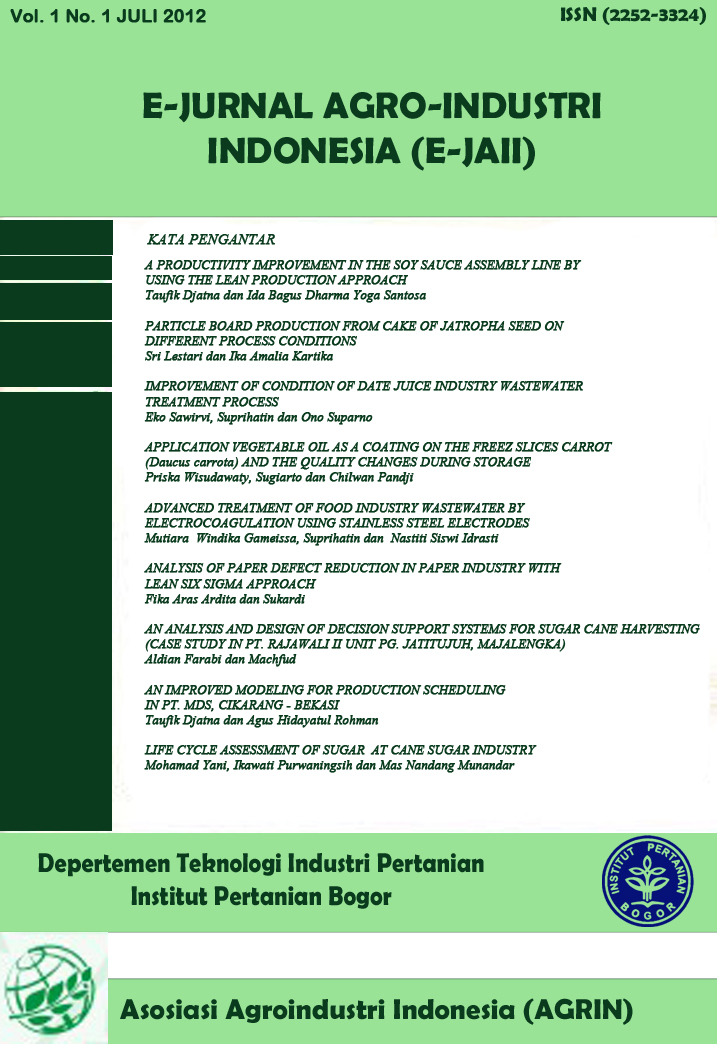ADVANCED TREATMENT OF FOOD INDUSTRY WASTEWATER BY ELECTROCOAGULATION USING STAINLESS STEEL ELECTRODES
Abstract
ABSTRACT
Food industry wastewater contains large amount of organic contaminants that cause water pollution. Approprite techniques for wastewater treatment can reduce the content of pollutants in the wastewater. Electrocoagulation is an alternative for treatment of the wastewater. This technique is pricipally a coagulation process that uses direct current through electrolysis. One of the advantages of this process is no need chemicals adding as coagulant. Electrocoagulation process has been carried out with a batch system on a scale of 1 Liter of wastewater using stainless steel electrodes with effective area of 108.9 cm2. Electrocoagulation has been performed on voltage variation of 9 to 24 Volt and operating time of 30 to 60 minutes. Samples were taken at each variable and analyzed for following parameters pH, TSS, turbidity, color, COD and phosphate concentration. The results showed that the greater voltage and operating time of electrolysis, the greater removal of contaminants in wastewater. Electrocoagulation optimal condition occurs at a voltage of 24 Volt and 60-minute operating time with efficiency TSS removal of 88.02%, turbidity removal of 76.85%, color removal of 77.49%, phospate removal of 100% and COD removal of 77.78%.
Keywords: advanced wastewater treatment, electrocoagulation, food industry wastewater

